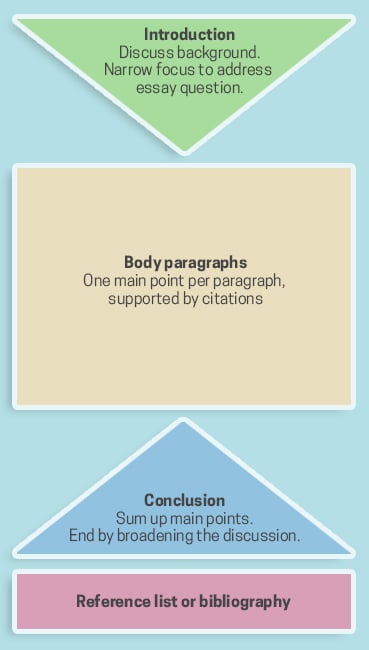Essay writing
When writing an essay, don't be tempted to simply summarise other writers' ideas. It is your discussion and analysis of ideas that should form the backbone of your essay.
What is an essay?
In an academic essay, you explore and discuss a topic through the analysis and discussion of published work in your discipline. One way you can demonstrate this is by summarising and paraphrasing other writers to compare, contrast and evaluate their ideas, findings and conclusions. You can use this analysis to construct your own opinions, questions or conclusions.
When writing an essay, you need to have a clear position on a topic (sometimes called a ‘thesis statement’) in the introduction. You then support your thesis statement in the body of the essay, using relevant ideas and evidence from credible sources. When you use someone else’s ideas, you must acknowledge them by appropriately referencing the source.
Essay writing is different to: reflective writing, which is usually based on personal experiences; and report writing, which focuses primarily on reporting facts and making recommendations.
Before you begin your essay
Before you begin writing your essay, there are some important steps and study routines to consider that will make the writing process much easier:
Structuring your essay
Here are some broad ideas for structuring your essay; however, always check the assessment instructions and rubric for any specific requirements.
As a general rule, try to begin and end each paragraph with your own thoughts rather than quoting someone else. Remember that your marker will be looking for your opinion, your discussion and your analysis of ideas.
Your essay will include:
- an introduction, where you address the essay question
- a series of body paragraphs, which outline your main points, supported by citations
- a conclusion, where you summarise your main points, and
- a reference list or bibliography.


